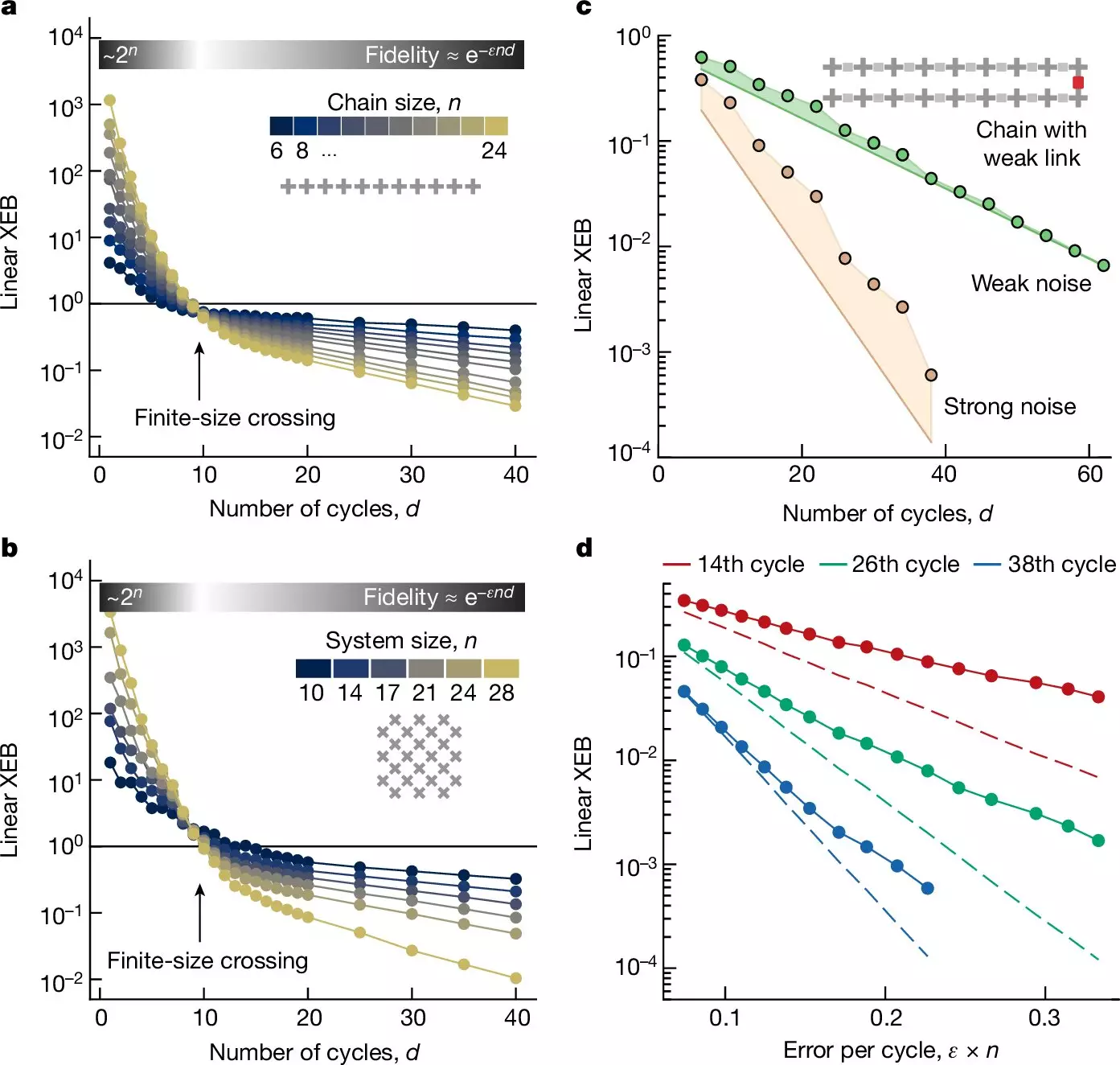In the evolving realm of computational technology, the quest for quantum supremacy has captivated researchers and technologists alike. Google Research’s recent achievements illuminate one of the most critical challenges in quantum computing: the detrimental effect of noise on computational accuracy. A formidable team composed of engineers, physicists, and quantum specialists has uncovered methods to significantly reduce noise interference, enabling the company’s Sycamore quantum chip to demonstrate a compelling advantage over classical computers in executing Random Circuit Sampling (RCS) tasks.
Quantum computing has long been perceived as a revolutionary enterprise, promising capabilities that dwarfed those of existing classical supercomputers. Despite the enthusiasm surrounding quantum computing for decades, the practical realization of its capabilities has remained elusive. Researchers have yet to construct a machine that can consistently perform computations far outperforming its classical counterparts, especially on sophisticated algorithms traditionally requiring extensive calculations. In a recent publication in Nature, Google’s research team has made significant advances, edging closer to this ambitious goal.
A crucial aspect of this progress hinges on the influence of environmental noise, which has historically been a primary barrier in quantum computing. Noise manifests from various environmental factors—a fluctuating temperature, shifting magnetic fields, or cosmic radiation—all of which can introduce errors in quantum operations. These errors complicate computations and hinder the reliability of quantum machines. Therefore, substantial efforts have been dedicated to error correction strategies aimed at mitigating these disturbances.
In their innovative approach, the researchers proposed strategies including housing their Sycamore chip within a near absolute zero chamber during operation. This radical move showcased that even minimal reductions in error rates—achieving a remarkable improvement from 99.4% to 99.7%—could facilitate profound advancements in the processor’s computational capabilities. This evidence substantiates the hypothesis that greater noise reduction corresponds directly to enhanced performance outcomes, establishing a clear path toward attaining quantum advantage.
Achieving “quantum advantage” with the RCS algorithm signifies a pivotal leap toward a future where quantum computers can execute tasks previously thought to be insurmountable for conventional technology. This breakthrough inspires optimism among computer scientists and researchers, hinting that within reach lies a new era of computing that can solve complex problems in mere seconds, a process that would traditionally take classical supercomputers lifetimes.
In essence, Google’s findings underscore a significant stride toward realizing the potential of quantum computing. As researchers continue to unravel the mysteries of noise and its influence on quantum systems, we move closer to unlocking the full capabilities of this cutting-edge technology, paving the way for innovations that could transform industries ranging from cryptography to drug discovery.

